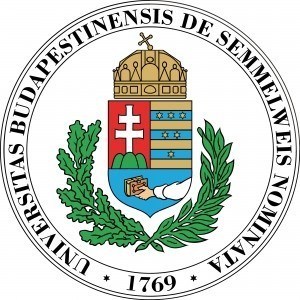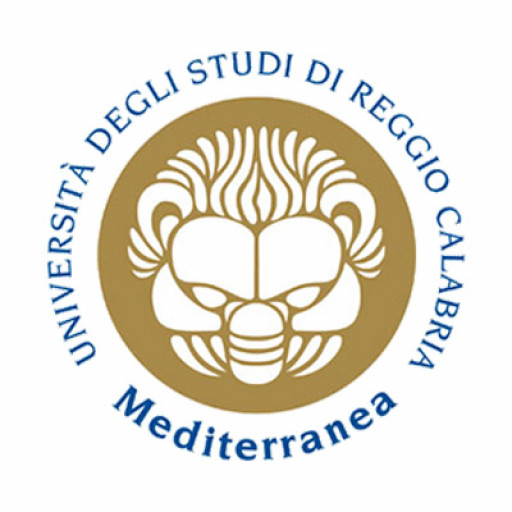Photos of university
Program Description:
The Bachelor’s degree program in Software Engineering at Eötvös Loránd University is a comprehensive and rigorous course designed to equip students with the essential knowledge and skills required to develop, analyze, and maintain complex software systems. The program emphasizes both theoretical foundations and practical applications, ensuring graduates are well-prepared for the dynamic and rapidly evolving technology industry. Throughout the course, students will explore core areas such as programming languages, software development methodologies, algorithms, data structures, database systems, and software architecture. They will also gain expertise in modern topics like web and mobile application development, cloud computing, cybersecurity, and software testing. The curriculum integrates hands-on projects, collaborations with industry partners, and research-oriented coursework to foster innovation and problem-solving abilities. Additionally, students have opportunities to specialize in areas such as artificial intelligence, machine learning, or embedded systems, aligning their education with current technological trends. The program is delivered by experienced faculty members who are active researchers in their respective fields, providing students with mentorship and guidance. Eötvös Loránd University’s state-of-the-art facilities, laboratories, and computing resources support practical learning and experimentation. Graduates of the program will be adept at designing, implementing, and managing software solutions across various sectors, including finance, healthcare, gaming, and information technology. They will also possess critical skills in teamwork, project management, and effective communication essential for leadership roles in software engineering. By completing this program, students will be positioned to pursue careers as software developers, systems analysts, quality assurance engineers, or continue their education through postgraduate studies. The Software Engineering program at Eötvös Loránd University is committed to fostering innovation, ethical computing practices, and lifelong learning to prepare students for successful careers in the technology-driven world.
The Bachelor’s Degree Program in Software Information Technology at Eötvös Loránd University offers a comprehensive curriculum designed to prepare students for a successful career in the rapidly evolving field of information technology and software development. The program provides foundational knowledge in computer science, software engineering, and information systems, combined with practical skills essential for designing, developing, and maintaining complex software solutions. Throughout the course of study, students gain a solid understanding of programming languages such as Java, C++, and Python, and learn both theoretical and practical aspects of algorithms, data structures, database management, and software architecture. The curriculum emphasizes problem-solving skills, software project management, and modern methodologies such as Agile and DevOps, ensuring graduates are well-equipped to meet industry demands. Additionally, students explore areas like cybersecurity, artificial intelligence, machine learning, and data analytics, enabling them to participate effectively in innovative technological advancements. The program also highlights the importance of teamwork and communication skills, often through collaborative projects and internships with industry partners. Eötvös Loránd University emphasizes a combination of academic excellence and practical experience, preparing students not only for employment but also for lifelong learning and adaptability in a dynamic IT landscape. Graduates of this program are prepared to pursue careers in software development, system analysis, IT consultancy, or to continue their studies in postgraduate programs. The program is supported by modern laboratories and extensive industry connections, providing students with opportunities for hands-on learning in real-world environments. Enrolling in this program means embarking on a challenging and rewarding journey into the world of software technology, gaining the skills needed to innovate and drive technological progress in diverse sectors worldwide.
Program Requirements: The Bachelor's degree program in Software Information Technology at Eötvös Loránd University requires applicants to possess a secondary school certificate or equivalent qualification that demonstrates sufficient academic preparation for university-level studies. Prospective students should submit their application through the university's official admissions portal, accompanied by certified copies of previous educational certificates, a motivation letter, and, if applicable, language proficiency proof such as TOEFL or IELTS scores. The program emphasizes foundational knowledge in computer science, programming, systems analysis, and software development methodologies. Candidates are expected to have a basic understanding of mathematics, particularly logic and discrete mathematics, which are essential for algorithm development and problem solving. Prior experience in programming languages such as Java, C++, or Python is advantageous but not mandatory, as introductory courses are included in the curriculum to bring all students to a competent level.
Applicants should also demonstrate analytical thinking, problem-solving skills, and an interest in information technology. In some cases, the university may require an entrance examination or interview to assess the applicant’s suitability for the program. Successful candidates must meet the university’s language requirements, ensuring they can effectively engage with coursework conducted primarily in English. During the application process, candidates are advised to review specific admission criteria, deadlines, and additional documentation requirements published on the university website.
Once admitted, students are expected to complete core courses in programming, software engineering, database systems, and computer networks, along with elective courses aligned with their areas of interest. The program encourages active participation in projects, internships, and research activities to enhance practical skills. To graduate, students must fulfill the credit requirements set by the curriculum, pass all examinations, and complete a final project or thesis demonstrating their comprehensive understanding of the field. Continuous assessment, participation in seminars, and teamwork are integral to the program’s evaluation process. Overall, the program aims to equip graduates with the theoretical knowledge and practical skills necessary for a successful career in software development, system analysis, and information technology management.
The financing of the Software Information Technology program at Eötvös Loránd University is primarily supported through a combination of state funding and tuition fees. As a Hungarian higher education institution, the university benefits from government support allocated through national educational budgets, which helps subsidize a significant portion of the program costs, making it more accessible to domestic students. International students, however, typically pay tuition fees, the amount of which varies depending on the student's nationality and residency status, in accordance with university regulations and government policies.
Students may also have access to scholarships and financial aid programs designed to support talented individuals and those with financial difficulties. These scholarships are offered by the university, regional or national bodies, and international organizations. The university’s own scholarship schemes aim to reduce the financial burden for students and encourage academic excellence and research activities within the program.
Additionally, students enrolled in the program have opportunities to participate in paid internships and cooperative education projects, which can help them gain practical experience while earning income to support their studies. Some students may also apply for government-backed student loans, which are available under Hungarian law, to help cover tuition fees and living expenses during their studies.
Funding sources for the program also include external research grants, industry sponsorship, and cooperation with technology companies interested in collaborating on research, development, and innovation projects. These partnerships often provide additional financial resources and equipment, supporting the educational and research infrastructure essential for a comprehensive Software Information Technology curriculum.
Eötvös Loránd University maintains an active policy to ensure that financial support mechanisms are transparent and accessible, facilitating equitable participation across diverse student populations. The university regularly updates its scholarship offerings and funding programs in line with national educational policies and the evolving needs of the IT industry, ensuring students are competitively prepared for their professional careers while minimizing financial barriers.
The Bachelor’s degree program in Software Engineering at Eötvös Loránd University is designed to provide students with comprehensive knowledge and practical skills in the field of software development and engineering. The program focuses on the theoretical foundations of computer science, programming languages, software design, and system architecture, alongside practical training in developing reliable and efficient software solutions. Students are introduced to core concepts such as algorithms, data structures, database management, and operating systems, which form the backbone of software engineering practices. The curriculum emphasizes modern programming techniques and tools, including object-oriented programming, web development, and mobile applications, preparing graduates for a wide range of careers in the technology sector.
Throughout the program, students engage in project-based learning, which fosters teamwork, project management skills, and real-world problem-solving abilities. They are encouraged to participate in internships and collaborations with industry partners, giving them valuable hands-on experience. The program also integrates courses in cybersecurity, software testing, and quality assurance, ensuring that students can develop secure and reliable software systems. Additionally, ethics and legal issues related to information technology are covered to instill responsible development practices.
The faculty comprises experienced professors and industry professionals dedicated to providing high-quality education, mentoring, and research opportunities. The program also involves participation in national and international research projects, seminars, and conferences, encouraging students to stay updated with the latest technological advancements. Graduates are equipped with the skills needed for software development roles in various sectors, including finance, healthcare, telecommunications, and entertainment.
Eötvös Loránd University aims to foster innovation and critical thinking, helping students adapt to the rapidly evolving IT landscape. Students graduate with a solid foundation for further studies or to immediately pursue careers in software engineering, application development, systems analysis, or technical consulting. The program emphasizes lifelong learning and continuous professional development, preparing students to meet ongoing technological challenges and contribute effectively to the digital economy.










